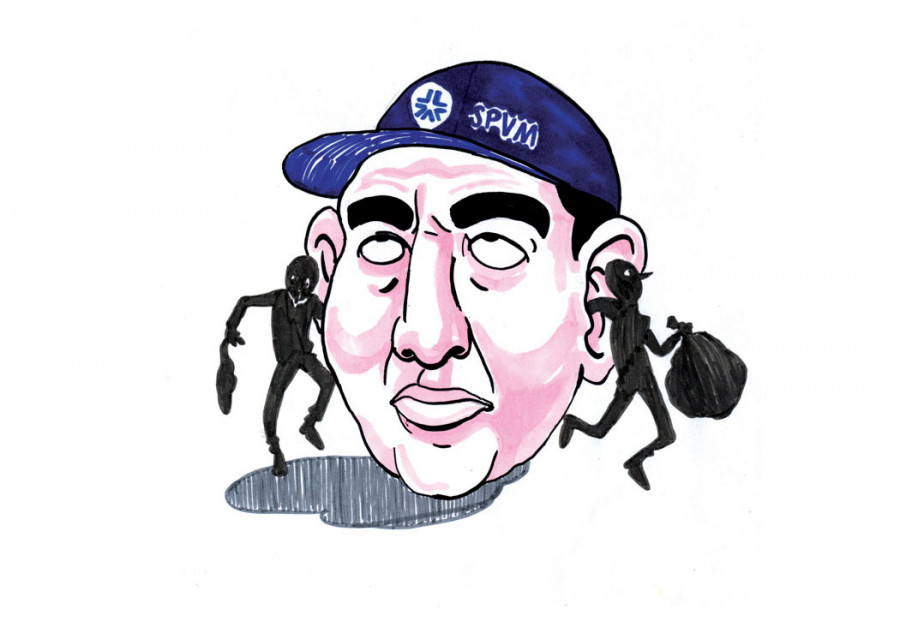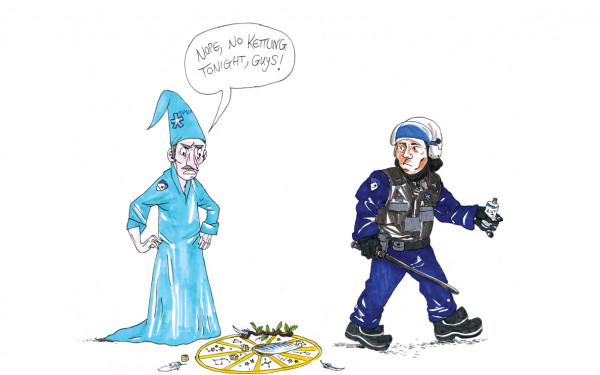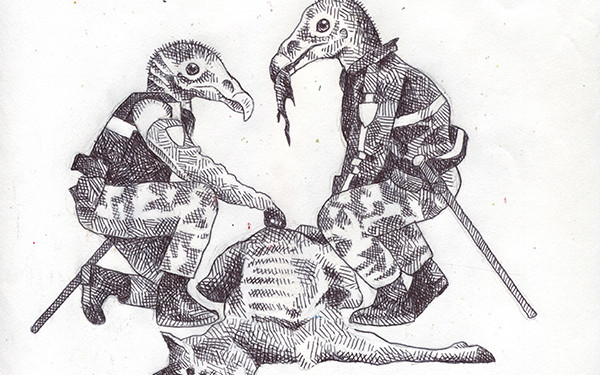In One Ear and Out the Other
On the SPVM’s Victim Blaming and Unwillingness to Investigate Crimes
At 7:15 a.m. on Nov. 10, a friend of mine was a victim of multiple injustices at the hands of not just thieves, but shortly after, by the SPVM.
Just a few blocks from Concordia’s Sir George Williams campus, someone entered her single-room apartment and stole over $2,000 worth of her property, including the computer that was sitting on the same bed she was asleep in.
Her purse was found discarded in the lobby, and her personal identification from the Ontario government was missing. Six hours after the initial call was made to police, Nelson Grenier, a supervisor of the Service de police de la Ville de Montréal Division 20, arrived at her residence.
After his aggressive and inappropriate tone was noted, I began to record the conversation out of general concern; all subsequent quotations are direct from the video.
The officer failed to leave proper contact information—I had to call the police station to get it after the fact—and approached the clearly upset woman with an attitude more suitable for a suspect than a victim. He accused her of being “kind of guilty” for the theft because she had been drinking the night before, and because a friend of hers had slept over.
Grenier shamed her by repeatedly reminding her that it was reckless to forget to lock her door, essentially blaming her for the circumstances rather than taking an active and investigative role.
He continued to patronize her even after she broke down in tears and asked him to be more respectful. His behaviour was incredibly contradictory—though he insisted that it was her friend who had robbed her, he simultaneously refused to investigate that option because he “had no suspicions.”
She then suggested he review the security tapes in her building’s lobby, but he responded that, “They don’t have to give you the information, it is for their protection, not for everyone’s on the street.”
After less than half an hour of scrutiny from Grenier, and a continuous refusal to investigate the crime, he left, only leaving behind a reference number for her file.
The next morning my friend obtained the security footage from her lobby, and the thief can unmistakably be seen holding something under his jacket. It was not her guest as the officer had so adamantly insisted.
In an attempt to recover her stolen property, she went to the police station with the footage that clearly shows a stranger trespassing in her home.
It was at this time that she stated she wished to file a police ethics report.
The officer she spoke to excused Grenier’s behavior, justifying his actions by saying that “everyone has a bad day,” as if this was not more so the case for the victim.
This is not the first time students living near campus have been refused police assistance in emergencies or as victims of crime. I have heard several students voice their frustration at officers in the Division 20 area over disrespectful and neglectful behaviour.
Students have gone to police with a number of issues ranging from breaking and entering to assaults to theft, and yet their problems are dismissed.
Blaming victims simply because they were drinking the night before is an all-too-common occurrence, and telling them they are guilty for being taken advantage of in that situation is one thing, but that a police officer could use that as a justification for not investigating a serious crime illustrates the pervasiveness of victim blaming.
The very first question Grenier asked my friend was if she had been drinking, which doesn’t seem entirely relevant to the situation. He insisted with such conviction that the thief was the person who had stayed overnight in her apartment that she began to cry, because while plausible, the thought of this being the case was incredibly troubling.
The fact that my friend did not want to be mentioned by name after witnessing how the officer interpreted her situation shows the element of shame at play.
I can’t help but feel like there is some sort of institutionalized gender inequality at play here. When Grenier told her that she was guilty—with nothing whatsoever to back it up—it implied she has done something morally wrong. He suspected that an intoxicated girl was taken advantage of by someone, but that simply wasn’t the case and, all moral considerations aside, actual crimes were committed and he had a legal duty to investigate.
This attitude exists in other, more serious instances of crime, something that is illustrative of the breadth of this type of victim shaming. I can’t help but feel that the officer is confusing moral and legal considerations, and in the end more harm than good was done to my friend.
In any event, the security footage shows that the thief was someone else, and when she returned to explain this, her concerns were dismissed on the grounds that she didn’t lock her door. Forgetting to lock your door does not entitle someone to enter your house and take what they please, and it’s also not a prerequisite for establishing breaking and entering charges.
To refuse to investigate such serious crimes is to ignore the role of a police officer in the community, which is to uphold the law and protect the law-abiding members of society.
People need to feel safe in their homes; my friend has not felt comfortable sleeping alone at her place and she has been staying with friends following the incident and lack of police attention. If the issue stems from an overworked staff, the SPVM needs to be hiring more, not investigating crimes less.
Students’ faith in their community is extremely important, and for an SPVM officer to claim that security cameras are “not for everybody on the street” is to imply that the safety of the greater community is not of concern.
First responders of any kind, whether police, paramedics or fire fighters, are entering a scenario where they know the victim will likely be distressed, and they should be held to an ethical standard which goes far beyond the victim shaming and indifference my friend experienced.


_600_832_s.png)


_600_375_90_s_c1.jpg)

